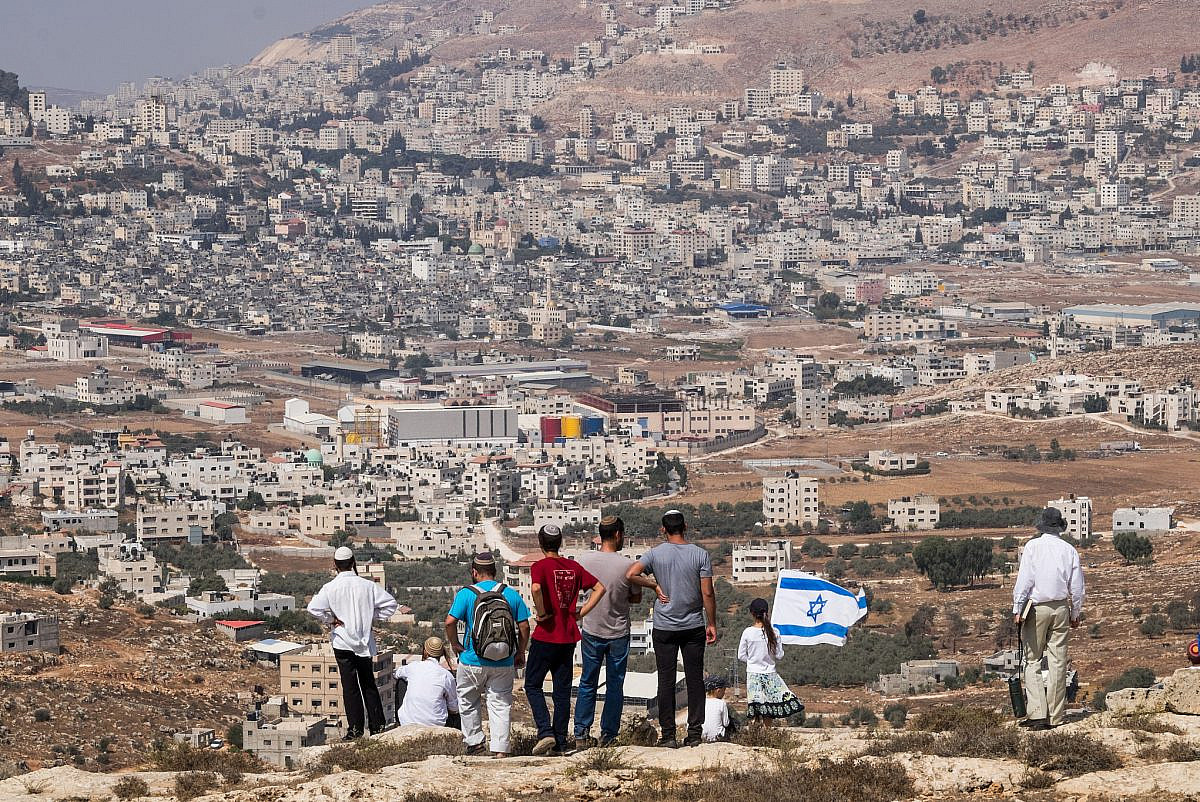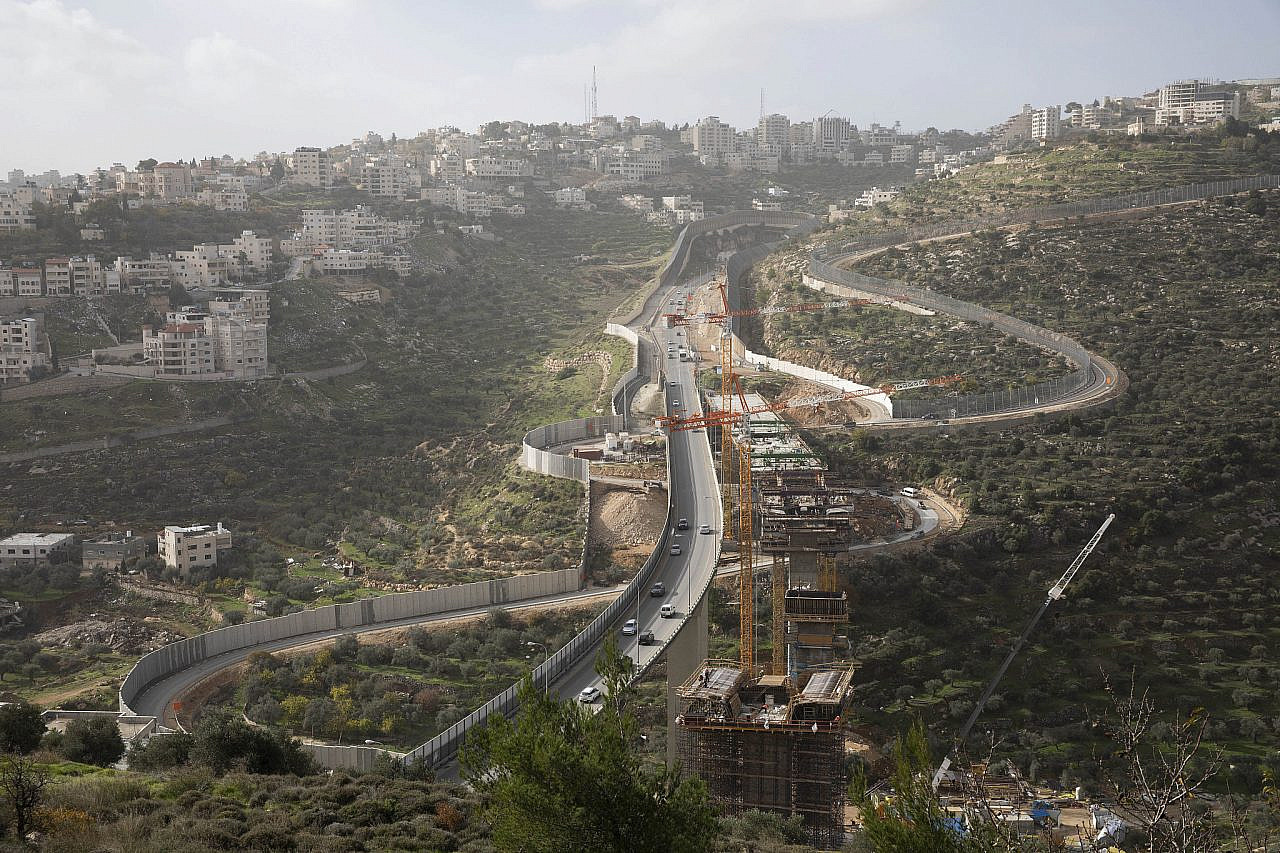“Look at these bastards,” the right-wing Israeli journalist and provocateur Yinon Magal tweeted on Feb. 18. “They blocked the personal account and the access to money (!!) of Moshe Sharvit the hero, brother of Harel RIP who died in Gaza, and a Zionist who’s watching over Israeli land in the Jordan Valley. The world is upside down.”
Moshe Sharvit is one of dozens of Israeli settlers to have been hit with international sanctions in recent weeks for their involvement in violent acts against Palestinians and left-wing Israeli activists in the occupied West Bank. His record speaks for itself: in 2020, Sharvit established an outpost (“Moshe’s Farm”) in the Jordan Valley, a vast stretch of the West Bank under full Israeli military control that is home to tens of thousands of Palestinians. He frequently harasses Palestinian farmers and shepherds while they work on their land, and, since October 7, he has been busy forcibly evicting Palestinian families from the rural community of Ein Shibli.
As a result, Sharvit has had the misfortune of being blacklisted by both the United States and the United Kingdom, amid a wave of first-of-their-kind measures imposed by Western governments against Israeli settlers. U.S. President Joe Biden’s Feb. 1 executive order set the stage, announcing sanctions against four settlers. The U.K., France, Spain, Belgium, and New Zealand followed suit with variations on Biden’s list, while Canada and the EU are set to impose sanctions of their own. Last week, the U.S. announced additional measures against two West Bank outposts and three more settlers.
The sanctions, which have so far mostly targeted lower-rung activists, are two-pronged. First, they amount to a ban on entering the sanctioning country; and second, they effectively prevent the targeted settlers from accessing the mainstream financial world, barring them from using most international banking services, including Israeli ones.
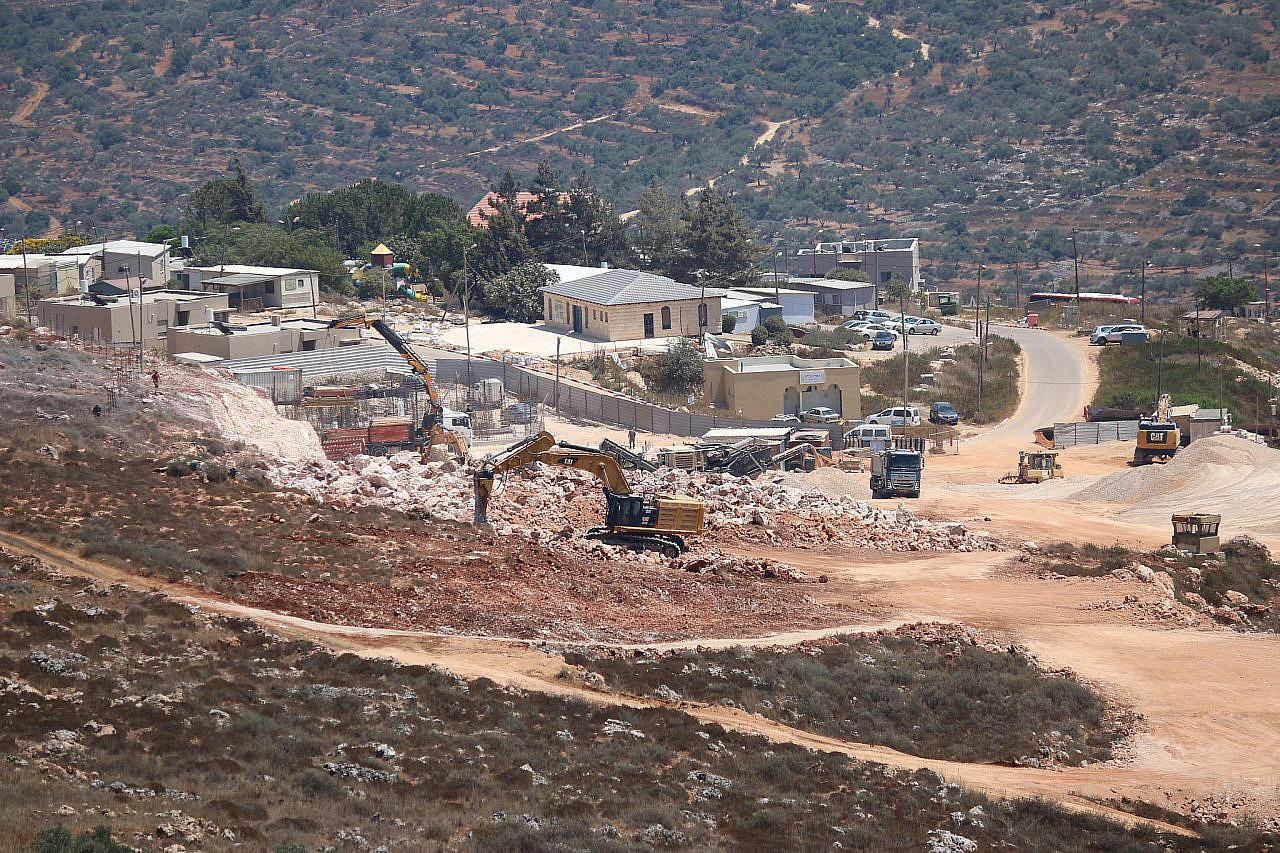
Despite their relatively narrow focus, the language of the sanctions and the timing of their implementation imply that more consequential action is likely to follow. As a result, the whole settler machine could find itself facing a level of duress that it has not previously known.
Room for interpretation
Biden’s executive order leaves much room for further action, with its sights set on individuals involved in “directing, enacting, implementing, enforcing, or failing to enforce policies … that threaten the peace, security, or stability of the West Bank.” The wording here is such that the restrictions could easily be expanded to encompass far more organizations and individuals than those named so far. After all, the settlement enterprise has always been a joint project of Israel’s government, army, and legal system working in unison.
With the State Department hinting at more forceful measures ahead, sanctions could soon implicate vast swathes of the Israeli state, including ministers, municipal bodies, and high-ranking security officials. They could also threaten the settler movement’s funding sources — including tax-exempt donations from the U.S., which are a lifeline for even the more “mainstream” settlements.
Moreover, Israeli banks — which have long operated in the West Bank and supported settler projects — could be forced to make sure that they aren’t handling money used by sanctioned settlers or outposts. If so, the relationship between the country’s largest financial institutions and one of the most powerful groups in the Israeli body politic would shatter, with unknown implications.
The latest U.S. measures targeting two outposts — Moshe’s Farm and Zvi’s Farm — leave further room for interpretation. How will the sanctions affect the companies working with these outposts? The suppliers who deliver materials to the farms? The NGOs that send volunteers to help guard them? These questions will likely be answered in the coming weeks and months.
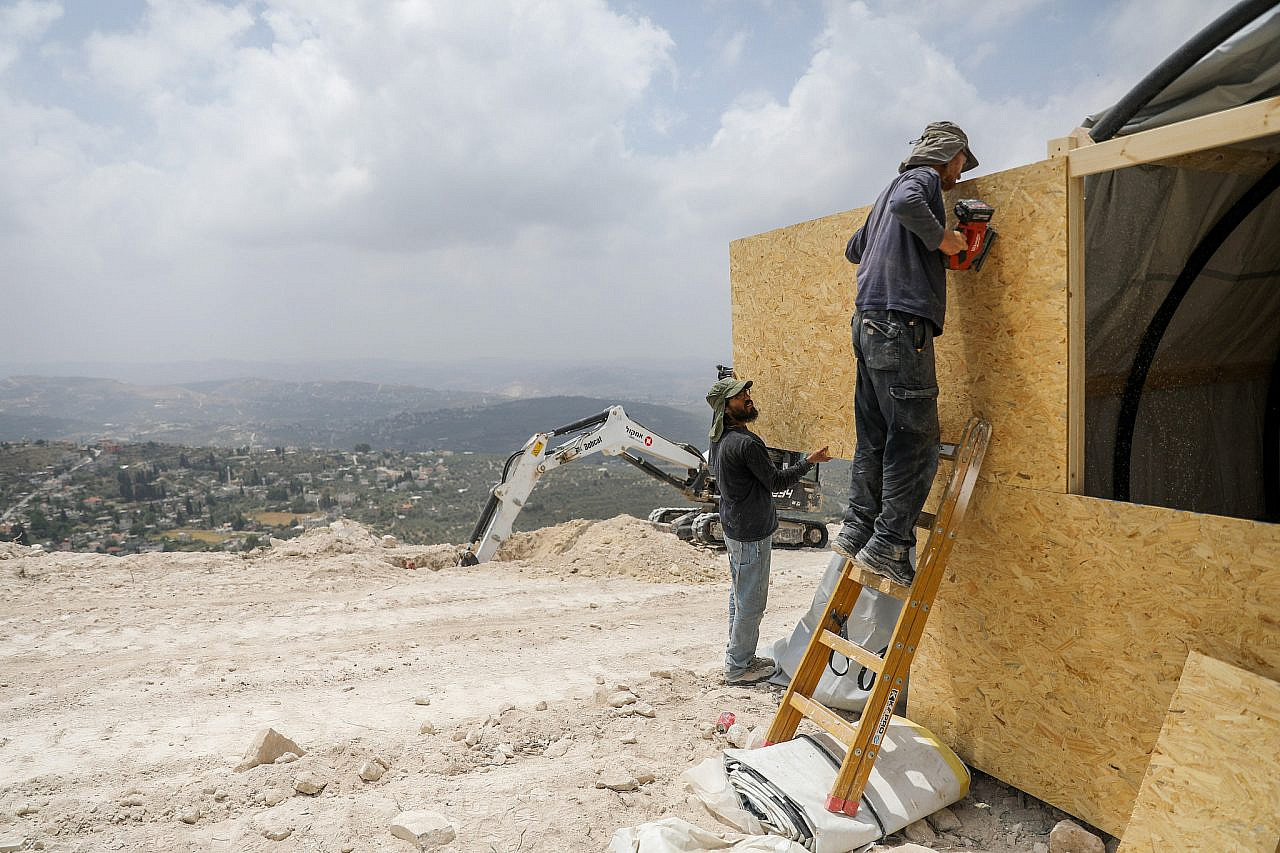
Another part of the state apparatus that could be implicated are West Bank regional councils. As Peace Now revealed last month, one of the sanctioned settlers, Yinon Levy, received money from the Har Hevron Regional Council in order to finance the construction of his illegal outpost.
Although their jurisdiction is relatively limited, regional councils have huge sway over the activities of the army, police, and politicians inside the occupied territory. For years, they have been run by extreme right-wing forces that control the day-to-day operations of building and maintaining illegal outposts. This relationship to more official-looking state bodies is invaluable for outposts, with regional councils helping them connect to basic services like electricity and water, and assisting with other administrative issues. In some cases, outposts are technically listed as expansions or new neighborhoods of established settlements in order to legitimize their status.
‘It starts with Yinon Levy, and continues on to senior army officers’
The pushback from senior Israeli politicians against the sanctions seems to indicate that the settler movement is feeling the pressure. National Security Minister Itamar Ben Gvir — himself a West Bank settler, living in Kiryat Arba near Hebron — responded with outrage to Biden’s announcement, demanding that Israeli banks reinstate the sanctioned settlers’ funds. “Restricting the bank accounts of settlers without explanation … is crossing a red line,” he said, adding: “I call on the responsible parties in Israel to act immediately to return the bank accounts that were blocked.”
Meanwhile, Finance Minister and West Bank overlord Bezalel Smotrich — who described Biden’s executive order as “part of a false and antisemitic campaign led by BDS elements,” and who is also a settler living in Kedumim near Nablus — is reportedly working to circumvent the sanctions. He told a meeting of his party that he was “in conversation with the Supervisor of Banks,” vowing that “such a reality must not be allowed.” (Israel’s central bank, the Bank of Israel, has stated that it will comply with international sanctions.) Smotrich is also threatening to freeze the money flowing from Israeli banks to the Palestinian Authority in the West Bank, which could lead to the latter’s collapse.
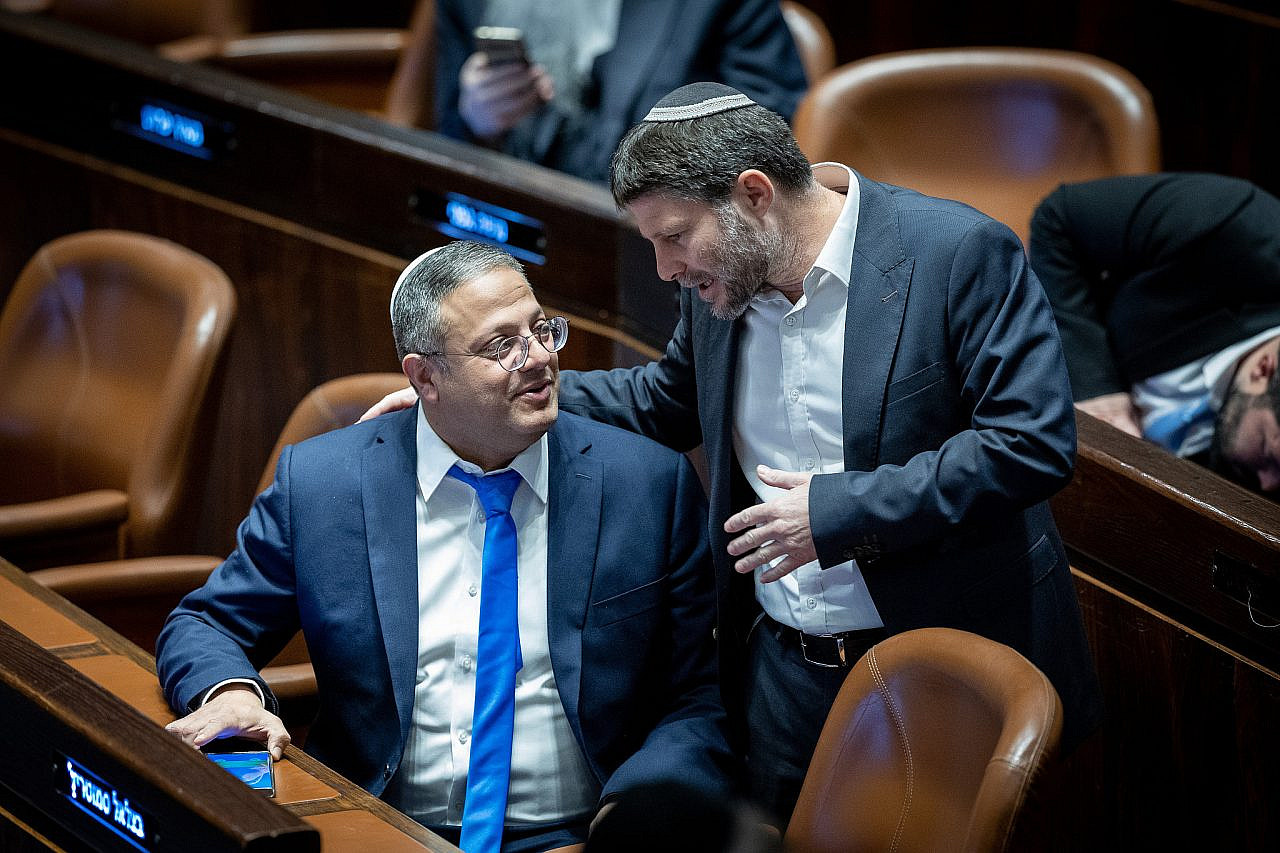
It should be noted that, in going to bat for the targeted settlers, Smotrich is potentially implicating himself in the sanctions by virtue of having “materially assisted … [a] person blocked pursuant to this order.” U.S. officials have reportedly already considered sanctioning both Smotrich and Ben Gvir.
These ministers are not alone in understanding the risks that the sanctions could pose to the settlement enterprise. At a Knesset hearing on Feb. 14, Likud’s Moshe Passal — who attended the infamous Gaza resettlement conference in late January — expressed a popular concern: “If a solution is not found now, then in the future sanctions may be imposed on all the settlers in Judea and Samaria [the West Bank].” Referring sarcastically to the depopulated Palestinian village on whose lands Tel Aviv University was established after the 1948 Nakba, Passal added: “Eventually, the settlers of Shaykh Muwannis will also be involved in this story.”
Zvi Sukkot, a member of Smotrich’s Religious Zionist Party, similarly warned: “It starts with Yinon Levy [one of the sanctioned settlers], and it continues on to senior officers in the army and council heads.” Sukkot has personal reason for concern: he was once detained as a suspect in an arson attack on a mosque in the northern West Bank, and as the current chair of the Knesset’s West Bank subcommittee, he presides over the system of impunity that allows violent settlers to go unprosecuted.
‘Aiding and abetting a crime’
To take down the settler movement, you need to shut off its funding. According to Shabtay Bendet, the former head of Peace Now’s Settlement Watch team, the settlement enterprise is fundamentally undergirded by financial considerations.
“The money goes to development and construction,” Bendet told +972. “When you arrive at a pristine place, you have to excavate a road and build infrastructure. From earthworks to castings, arranging caravans, building from wood or other materials — everything costs money.”
Historically, settlers received funding through Israeli government ministries and local authorities, and with the help of friendly government officials and ministers. But in recent years, the settlement movement has diversified its funding sources.
Settlers have begun courting large donors from abroad, who contribute funds through a series of obscure and anonymous bodies that funnel the money to West Bank hilltops. The Russian-Israeli oligarch Roman Abramovich, for example, reportedly donated over $74 million to a settler group operating in East Jerusalem. American groups, many of them Evangelical Christian, have donated hundreds of millions of dollars to settler groups.
More recently, though, settlers have come to rely on an unlikely source: crowdfunding. Take the website Charidy. Established in 2013 by followers of the ultra-Orthodox movement Chabad, it is used by a variety of groups to raise funds. For example, Agudat Israel, a Haredi political party and movement, has raised over $10 million on the site, and many yeshiva (religious school) fundraisers get millions of dollars combined.
But Charidy is also avidly used by far-right groups. Many “Torah nuclei” — religious-nationalist groups that seek to Judaize so-called “mixed cities” within Israel — are raising millions through the website. “The Jewish Voice,” the news site of the hilltop youth, where Jewish extremism is often lauded, has raised over NIS 800,000 (around $220,000) through Charidy. And the crowdfunding site is also used to raise money for illegal outposts.
One of the first settlers sanctioned by the U.S., David Chai Chasdai, even tried using Charidy to fundraise after his bank account was frozen. But in compliance with the sanctions, the site took down his page.
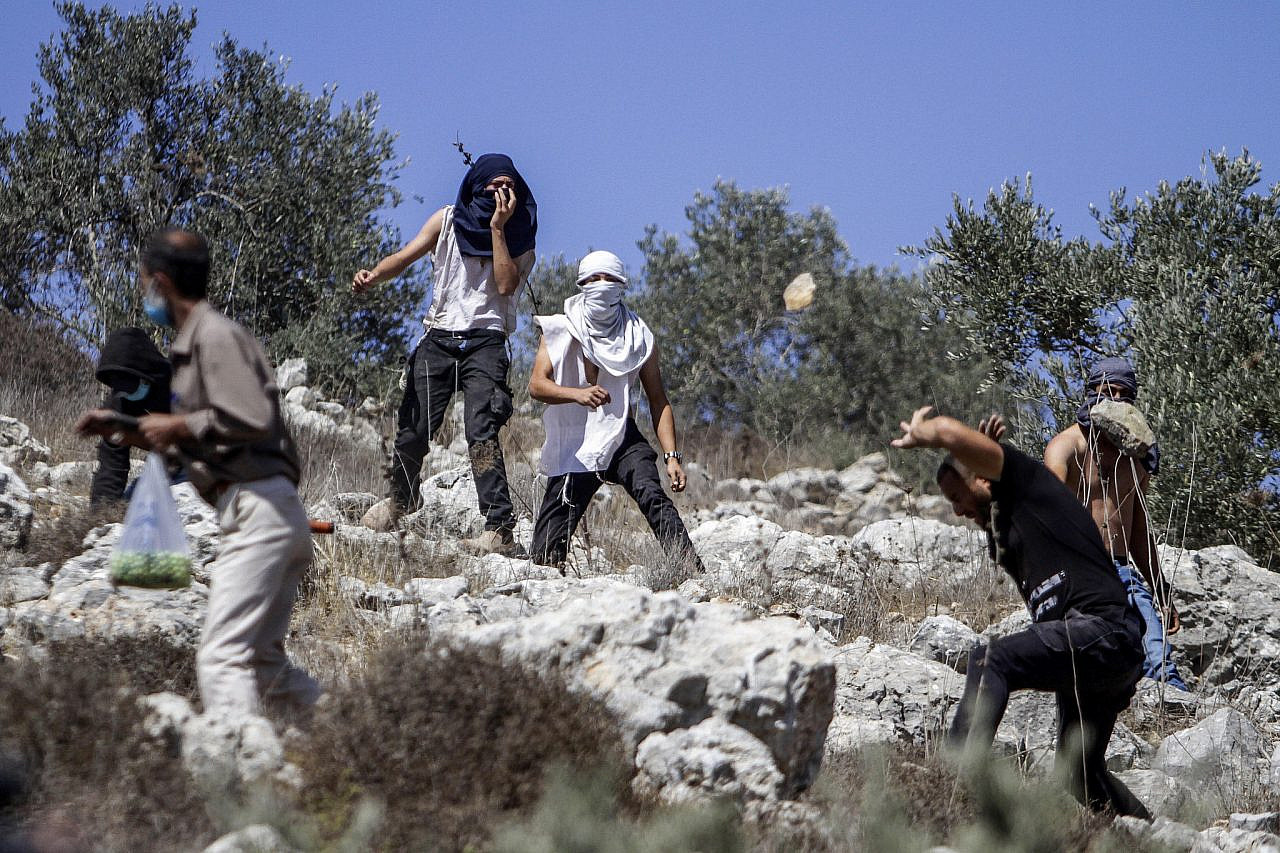
Understanding this financial operation is key to understanding the settler movement as a whole, and why scaled-up sanctions could pose such a threat. For Alon Sapir, a human rights lawyer who has filed court petitions against the funding of outposts, this web could implicate vast swathes of Israeli society.
“Building an outpost is committing a criminal offense,” Sapir explained. “Raising money for this activity — at the very least — is aiding and abetting a crime.”
Overdue questions
The sanctions that have already been imposed, and those that may yet come, present a unique challenge to Israel. For the past 20 years, the state’s strategy in the face of international pressure has been to refuse to differentiate between the pre-1967 borders and the occupied territories. Calls to boycott settlements have been smeared by Israeli hasbara (public relations or propaganda) as a form of BDS, even when such calls are made by liberal Zionist groups operating within Israel.
Successive Netanyahu governments have created new ways of channeling money to the settlement project by tying it almost inexorably to core state operations. But with international sanctions specifically targeting violent actors in the West Bank, a critical new question may arise: can the state work with people and businesses that are blacklisted by the mainstream financial system, or that are soon to be? Can state actors themselves, such as the military commanders who send soldiers to expel Palestinian communities, be cut off?
Most read on +972
For years, nothing disrupted the billions of dollars flowing into settlements and outposts. The recent wave of international sanctions, imposed amid the Gaza war and the destruction that Israel is wreaking in the Strip, is the first step in a possible disintegration of the settler machine, and a possible roadblock in Israel’s slow annexation of the West Bank. The foundations have been laid. All that is required now is the will to do what is necessary to turn years of verbal condemnation into tangible action.
Amid all this, Israelis might soon have to ask themselves whether pursuing the settlement project in the West Bank is worth sacrificing their access to international finance, and worth incurring a growing list of sanctions against their officials and institutions. And that is a question that should have been posed a long time ago.

